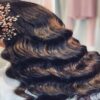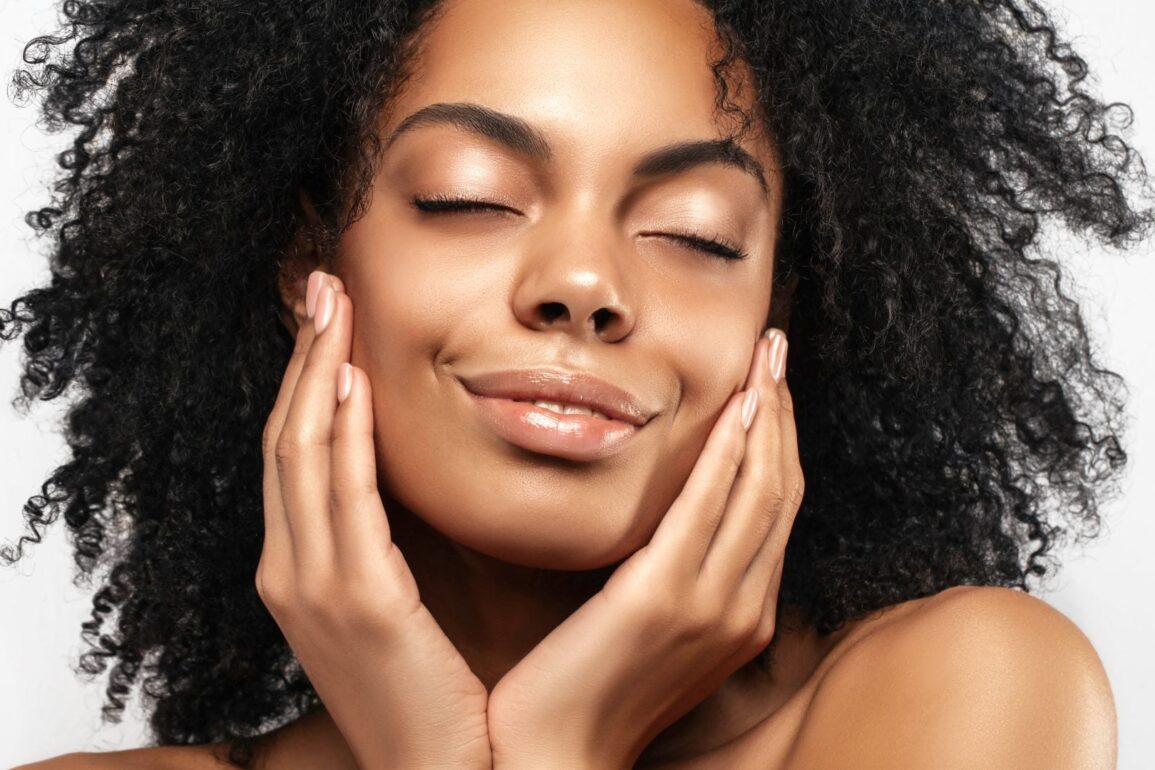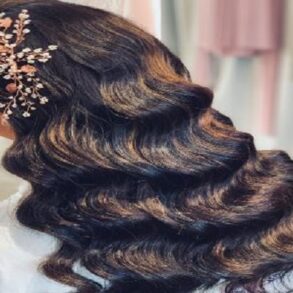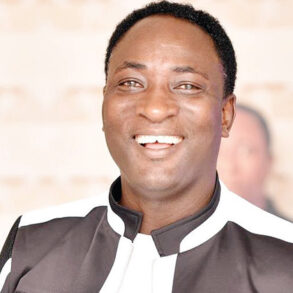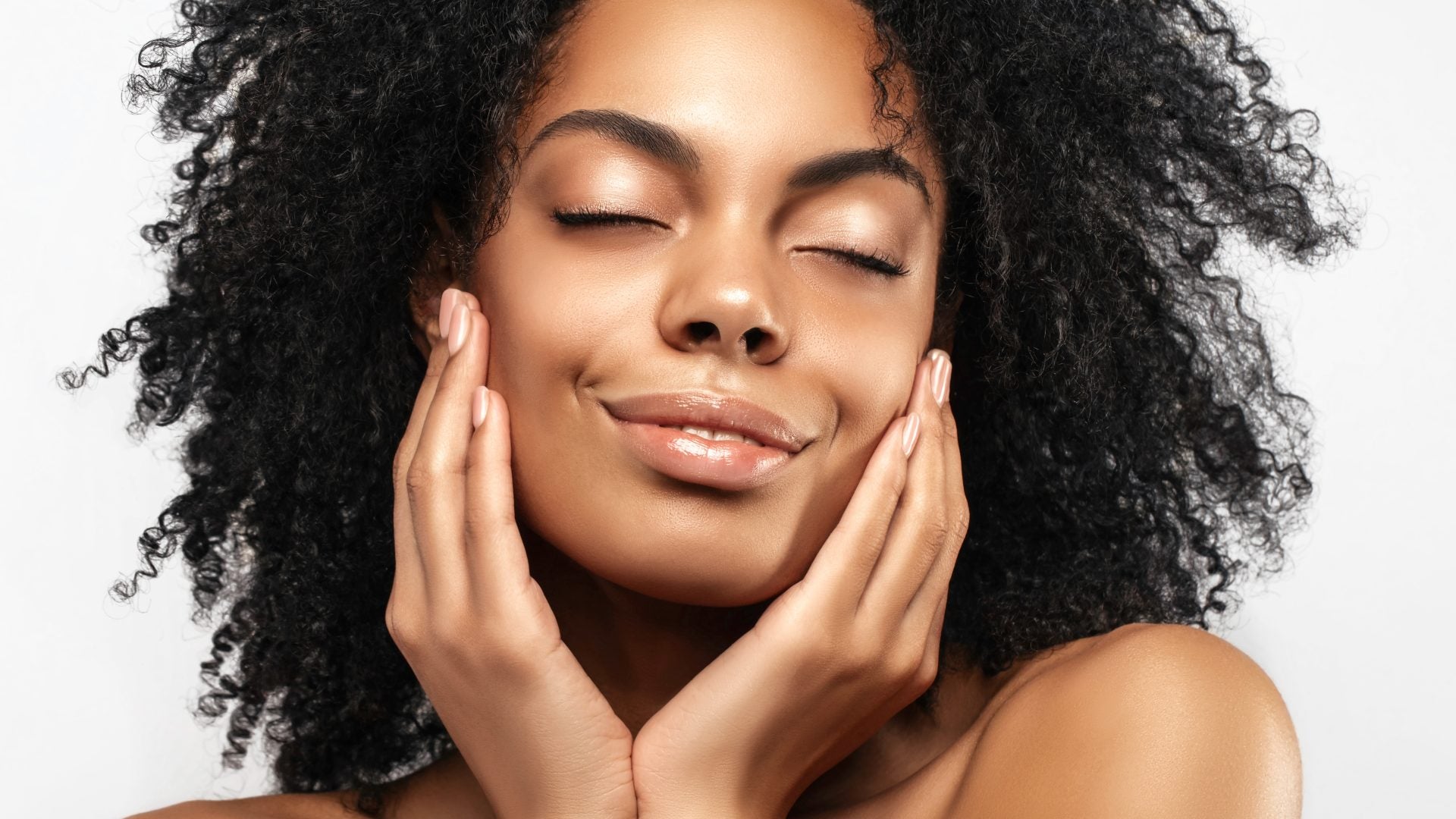
“I didn’t understand why my version of puberty felt so different from everyone else’s,” says Umber by J. Lenay founder Jasmine Nelson, who recounts these feelings as the first sign of hormonal imbalance.
As a teen, her period cramps were unusually painful, body odor more intense, and then “I started noticing hair growing on my neck.” When she turned 16, she finally went to the doctor about her excessive facial hair. “That’s when they unofficially guessed it might be PCOS,” she says, trying to get her insurance to cover laser hair removal. “But the doctor said it was ‘cosmetic,’ not a real medical concern.”
Polycystic Ovary Syndrome (PCOS) is the most common endocrine abnormality of reproductive-aged women in the US, often producing excessive hair growth, infertility, and weight gain, among other symptoms. “They didn’t seem to understand just how much it was affecting me mentally and emotionally,” she says. After being prescribed birth control and spironolactone, a medication used as an anti-androgen, her doctor suggested bloodwork to check for hormonal imbalances. “But everything came back ‘normal,’ which only added to the confusion.”
Not fully understanding what was happening to her body, she didn’t receive an official diagnosis until much later, but, by then, she’d been dealing with the symptoms on her own for years. It wasn’t until an ultrasound during her first pregnancy that she realized just how concerning her ovaries were.
“What I saw on the monitor were dozens of cysts,” she recalls. “Even the tech made a comment, saying she was surprised I was even pregnant given how many cysts were visible. And that is when I knew for certain that I had PCOS.”
There has been a growing community of Black women with PCOS online, with one million posts under the hashtag #pcos on TikTok. From women sharing their hair removal routines, to intimate feelings about their appearance and tips on hormone-balancing diets, how the syndrome impacts the Black community has been going viral.
However, with the harmful stereotypes of Black women being masculine and aggressive, and having to prove they’re feminine, delicate, and frail more than other groups, the syndrome affects Black women in an unusual way. “I’ve had moments where I felt unfeminine, unattractive, and just felt like hiding from everyone,” Nelson says.
Feeling isolated by her hair growth, she says beauty standards pushed on social media cause even more harm to women like her. “Every day, we’re flooded with images of ‘flawless’ beauty—filtered perfection, airbrushed skin, and an unrealistic standard that most of us don’t fit into,” she says. “But no one talks about the real women who deal with hormonal imbalances, excessive hair growth, and genetic differences.”
Meanwhile, other women may be dealing with PCOS, but not even know they have the syndrome at all. “Culturally they may think their hair distribution is normal because ‘they get it from their momma’,” says Dr. Lisa McLeod, an OBGYN with PCOS. “If a woman’s excessive hair is on their chest, sternum or back, I can’t begin to tell you how many Black women I’ve seen with this distribution and I’ve pointed it out to them and they just thought it was normal.”
Hyperandrogenism, meaning high levels of male hormones in females, can cause female-pattern hair loss, acne, and excessively thick terminal hairs called hirsutism. “The testosterone increases hair growth in areas that are considered male distributions like on the lip and chin,” Dr. McLeod says. “If we consider the vagina, where hair grows in an inverted triangle distribution, because of the influence of testosterone, this hair will continue to spill onto the thighs or it may extend further up creating a more prominent ‘happy trail’.”
Although hair growth trends, like using minoxidil to grow sideburns and wearing a “full bush in a bikini” are promoting taboos like women’s pubic and facial hair, not having a choice makes the trends less empowering with removal remaining a popular practice among the PCOS community. “I started removing my hair around 15, and honestly? Worst decision I ever made,” says Nelson. “I had no idea what I was doing, and it led to a lot of ingrown hairs and dark spots from using a razor incorrectly.”
Since then, she’s tried it all: plucking, Nair, DIY, and even permanent solutions, like laser hair removal and electrolysis sessions. But, they still backfired. “Instead of reducing my hair, both methods actually seemed to stimulate even more growth,” she says. Taking hair maintenance upon herself, Nelson founded her own hair removal brand, Umber by J. Lenay, targeted to people with hirsutism, PCOS, and hormonal imbalances.
Now, her hair removal routine consists of plucking and using her Hair Reducing Fade Oil, which helps thin out hair, shrink follicles, and slow re-growth. However, PCOS requires more care than just hair. “What I want people to understand is that PCOS isn’t just about hair growth or irregular periods—it’s a full-body condition that affects hormones, metabolism, fertility, and even mental health,” she says.
According to Dr. McLeod, PCOS does not yet have a cure, so finding proper care is often surrounded by the symptom the patient finds most distressing. “If the concern is hair growth alone, the care could consist of spironolactone or eflornithine cream,” she says. “Lately I have been placing more women on myo-inositol which is a vitamin supplement that helps with glucose metabolism,” she says, which resulted in successful pregnancies for women previously considered infertile.
Despite dealing with facial hair, infertility and other symptoms, “we are still women,” Nelson says. “PCOS can be an emotional and physical battle, but the more we talk about it, the less alone we feel. Women with PCOS deserve understanding, support, and real solutions—not shame.”
This post was originally published on this site be sure to check out more of their content.


